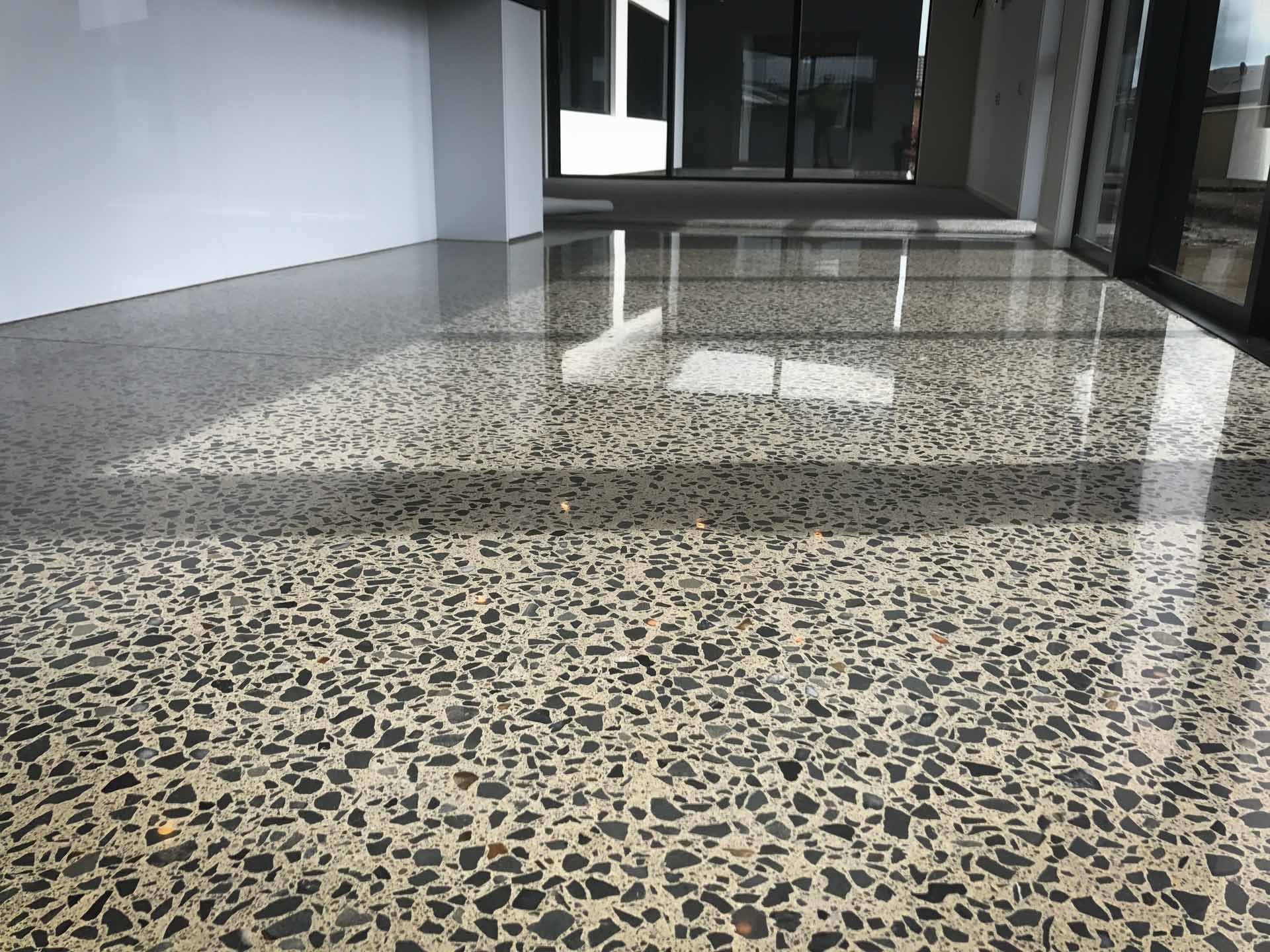
FAQ
Common questions about concrete polished floors
What are Concrete Polished Floors?
Concrete polishing is the mechanical refined process of polishing the surface of the concrete. Chemicals are added to give hardness and stain protection. Depending on the system used, a hydrophobic floor is achievable to stop water and stain ingress.
Do polished concrete floors scratch?
The surface does not have a topical coating so is therefore many many times harder than any epoxy or sealer. Normal use with forklifts or trollies etc results in no scratches. So in normal use, the answer is no.
Maintenance of Concrete Polish?
Depending on the system used there is very low maintenance other than general cleaning which is best done by an auto scrubber for commercial use or steam mop/micro fibre mop in domestic conditions.
Does it stain if I have my house floors polished?
No – Here at Floorcoat we make sure that we deliver a non stainable polished floor. It costs us a lot more but we believe this is the only way for the domestic market. Using advance new 3D technology since February 2014, water and stains are repelled.
Can I have different shines – like satin or gloss?
Yes.
What is the Typical Cost of polished concrete?
Polishing concrete can vary in price – Such variations include size of the job, attention to small detail, such as bathrooms etc. Type of grinding required. Make contact with us and we can get you a quick estimate for your project. As a guide line, prices start at $16 a sq/m to $140 a sq/m.
Do your jobs have small unsightly pits?
No – Our refined process means that the concrete and the stones are the same level of gloss with NO pits. We also have a premium finish that has no rash as well. This finish is better than a granite bench top and has to be seen to be believed. Have a look at our polished concrete gallery.
Do you have a concrete polishing pouring guide?
Yes, we have a comprehensive pouring guide to the concrete. This means that your job will come up the best you can get if the placer follows our simple instructions.
Is there a difference between a floor poured for polishing and one that is not?
In some cases yes.
What happens if I have cracks in my concrete?
We have a very special process that glues the slab back together BEFORE grinding and polishing begins.
Hairline cracks in polished concrete floors are less visible, but the larger cracks, even when repaired, can still be seen.
While we do have a really good system for making them less noticeable, they will always be there.
Cracks may happen due to earthquakes/ground movement, and is outside of our control.
Are the floors cold?
We recommend polystyrene under the concrete and if budget allows then plumbing for under floor heating to be installed as well. Doesn’t have to be hooked up but pays for it to be installed for future proofing if required. Every house will be different depending on design layout etc. Concrete has great thermal gains but the house needs to be built with this in mind.

